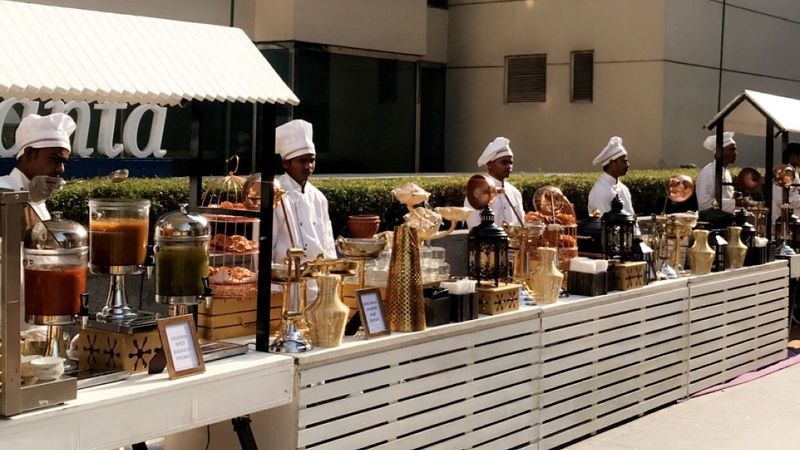Corporate Event Catering Services – Crafting Unique Dining Experiences for Professionals
Corporate event catering services play a pivotal role in shaping professional gatherings, offering more than just sustenance but crafting unique dining experiences that leave lasting impressions. These services cater not only to the culinary needs of attendees but also to the broader objectives of the event, whether it is a conference, seminar, gala, or corporate retreat.
Understanding Corporate Event Catering
At its core, corporate event catering goes beyond mere food provision. It integrates seamlessly into the event’s theme and purpose, reflecting the company’s image and values. Caterers often work closely with event planners to curate menus that align with the event’s tone and audience expectations. Whether it is a formal sit-down dinner to commemorate a milestone or a casual networking lunch, the menu is crafted to enhance the overall experience and foster meaningful interactions among attendees.

Customization and Menu Planning
One of the hallmarks of corporate event catering is its versatility and customization. Caterers offer a range of options from gourmet delicacies to dietary-specific menus accommodating various preferences and restrictions. This flexibility ensures that every attendee feels included and cared for, enhancing their overall satisfaction with the event. Menu planning involves careful consideration of seasonal ingredients, culinary trends, and the logistical feasibility of serving a large group efficiently and Book Your Event.
Creating Memorable Dining Experiences
Beyond the culinary delights, corporate catering services strive to create memorable dining experiences. This can include interactive food stations where chefs prepare dishes on-site, enhancing engagement and providing a sensory experience. Unique presentation styles, such as thematic plating or branded desserts, add a personal touch that reinforces the event’s message and brand identity.
Professional Service and Hospitality
In addition to food quality and presentation, professional service is crucial in corporate catering. Trained staff members not only ensure smooth operations but also contribute to the ambiance of professionalism and hospitality. From greeting guests to managing dietary requests discreetly, exemplary service leaves a positive impression on attendees, reflecting well on the organizing company.
Logistics and On-site Coordination
Successful corporate event catering requires meticulous planning and seamless execution. Caterers handle logistics such as venue coordination, equipment setup, and breakdown, allowing event organizers to focus on other aspects of the event. On-site chefs and staff ensure that food is served promptly and at optimal temperatures, maintaining the quality and integrity of each dish throughout the event.
Enhancing Networking Opportunities
Food has a unique ability to facilitate networking and relationship-building among professionals. Catered events provide natural opportunities for attendees to mingle over meals, fostering connections that can lead to future collaborations and business opportunities. Thoughtfully designed seating arrangements and dining formats encourage interaction, helping to maximize the event’s networking potential.
In essence, corporate event catering services go beyond serving food they create immersive dining experiences that complement and elevate professional gatherings. By aligning culinary expertise with event objectives and attendee expectations, caterers contribute significantly to the overall success and impact of corporate events. Through customization, creativity, and impeccable service, they leave a lasting impression that enhances the company’s reputation and fosters meaningful connections among attendees.

